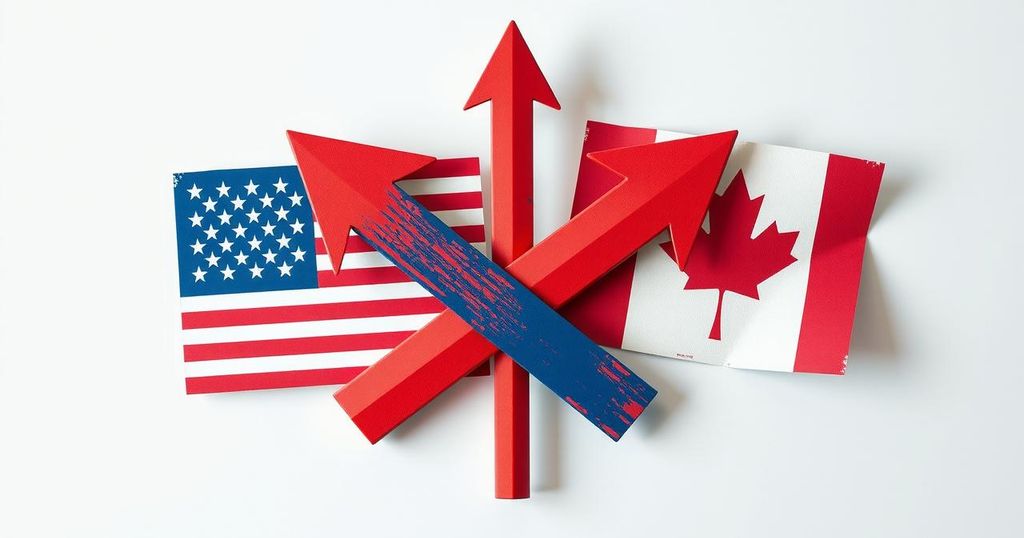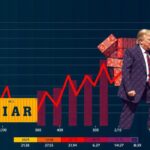Trump and Trudeau Discuss Impending Tariffs as Trade Concerns Mount
Prior to the implementation of tariffs on Canada, Mexico, and China, President Trump discussed trade issues with Prime Minister Trudeau, expressing dissatisfaction with Canada’s cooperation on trade and drugs. As both nations prepare retaliatory tariffs, economists warn of potential negative effects on the economy and market stability.
In Washington, President Donald Trump engaged in discussions with Canadian Prime Minister Justin Trudeau ahead of tariffs set to take effect on Tuesday. As uncertainty looms regarding the impact of these tariffs on international relations and commerce, Trump expressed dissatisfaction with Canada’s trade practices on social media, emphasizing the importance of cooperation in combating drug trafficking and illegal immigration.
Trump’s social media announcement revealed that he spoke with Trudeau earlier on Monday and plans to speak again that afternoon. He also mentioned dialogue with Mexico’s leader. Both Canada and Mexico are preparing to respond with their tariffs in reaction to the actions by the United States. In light of this escalating situation, U.S. citizens and markets are bracing for potential adverse effects.
The tariffs are part of a wider strategy, with Trump indicating that they may escalate unless Canada and Mexico take stronger action against illegal immigration and drug smuggling. Currently, Canada faces a tariff of 25% on its imports to the United States, while Mexico also faces a similar 25% tariff. China is subject to an additional 10% tariff due to its involvement in the fentanyl trade, as stated by the Trump administration.
Kevin Hassett, the director of the White House National Economic Council, noted that framing this situation as a trade war is misleading, asserting that it is primarily a response to the drug crisis rather than economic retaliation. However, Trump’s rhetoric often highlights trade imbalances, which he views as detrimental to the United States.
Economists are expressing concerns that the tariffs could contribute to rising prices and diminished economic growth if not resolved. Joe Brusuelas, a chief economist at RSM, stated that while a recession may not occur this year, the tariffs would have negative effects on economic performance, potentially increasing the cost of borrowing.
Overall, the ongoing discussions between Trump and Trudeau highlight the fragile state of U.S. trade relations with its neighbors as they navigate tariffs that could have wide-reaching implications for many sectors of the economy. The situation remains fluid, with potential for both escalation or resolution in the near future.
The article revolves around the impending tariffs imposed by President Donald Trump on Canadian, Mexican, and Chinese products. Tariffs are taxes on imports meant to protect domestic industries from foreign competition but can lead to retaliation from affected countries. The situation is heightened by Trump’s ongoing discourse on trade imbalances, illegal immigration, and drug trafficking, revealing a complex intersection between trade policy and national security issues.
The communications between President Trump and Prime Minister Trudeau are critical as both leaders prepare for significant tariffs that could reshape trade dynamics. As both nations consider reciprocal tariffs, the impact on the economy and the potential for a trade war is a pressing concern. The discussions reflect the larger debate surrounding trade practices, national security, and economic stability.
Original Source: apnews.com







Post Comment